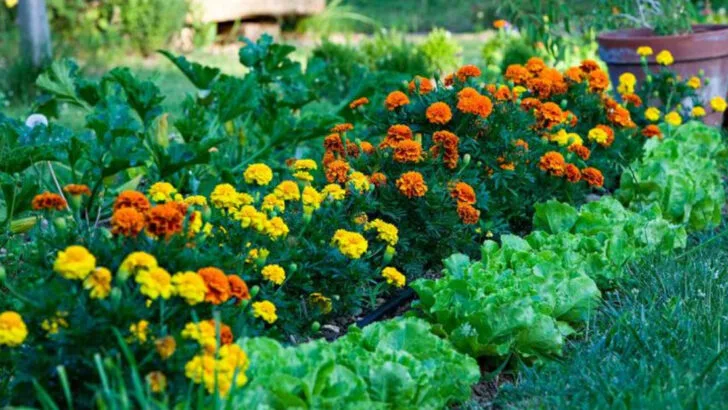Every gardener runs into a few headaches wilting leaves, stubborn pests, mysterious spots that show up overnight. The usual fix might be a chemical spray or store-bought solution, but those quick fixes can leave you wondering what else you’re inviting into your soil, your food, or the air around you.
There’s another way to handle garden issues that doesn’t involve gloves, goggles, or a warning label. Plenty of plant-based fixes do the job just as well, often with ingredients you already have in the kitchen or compost bin. These gentle solutions don’t just tackle the problem; they help build a healthier garden overall, one that works with nature instead of against it.
Neem Oil Elixir
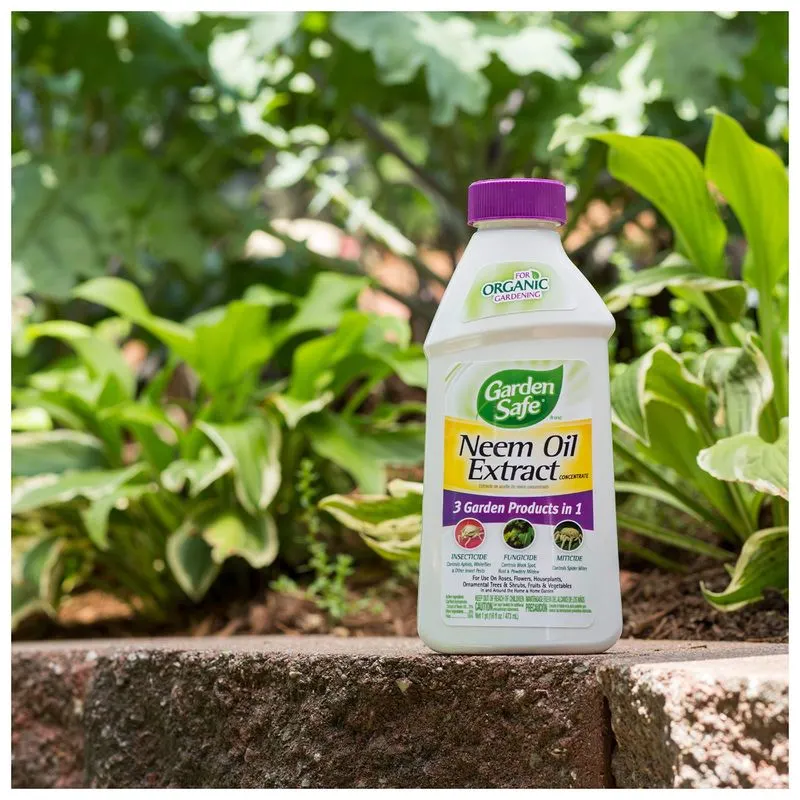
Neem oil, extracted from the seeds of the neem tree, is a versatile solution for battling pests. Imagine tiny drops of this golden liquid working wonders in your garden. It disrupts the life cycle of insects, keeping them at bay. Apply it to affected plants as a natural insecticide that’s gentle yet effective. Neem oil is safe for pollinators, ensuring your garden remains a buzzing hub. Did you know? Neem has been used in traditional medicine for centuries. Embrace this age-old remedy to cultivate a healthy garden ecosystem.
Garlic Barrier
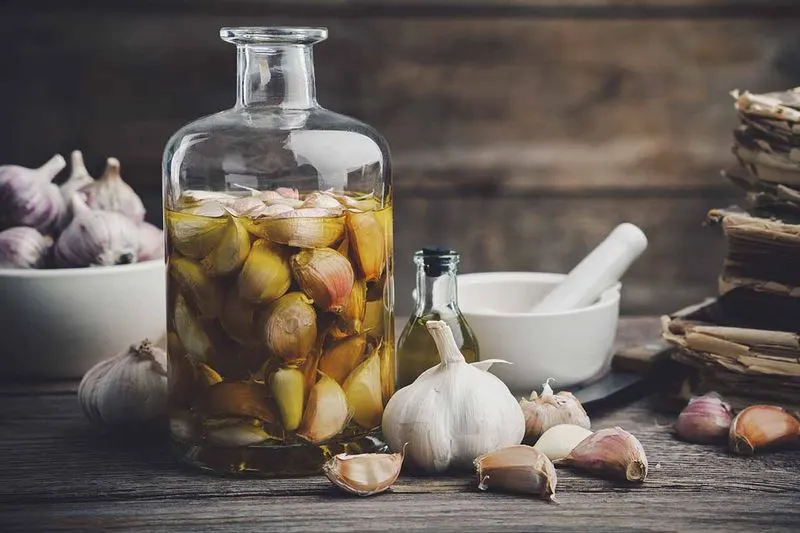
Garlic isn’t just for culinary delights; it’s a fierce protector of your garden. Its pungent aroma repels a variety of pests. Create a garlic spray by blending cloves with water, and spritz it on plants. It’s like a natural shield that wards off unwanted visitors. The best part? Garlic’s effectiveness doesn’t harm beneficial insects. Interesting fact: Historically, garlic was used in ancient gardens for its potent protective qualities.
Chili Pepper Defense

Turn up the heat with chili peppers, nature’s fiery deterrent. Capsaicin, the active component in chili, deters pests with its spicy kick. Create a homemade spray by mixing crushed peppers with water, and apply it to leaves. This fiery concoction is a strong deterrent, yet harmless to plants. Historically, chili peppers have been cultivated for their protective and culinary properties, adding a touch of spice to your garden care routine.
Soap Spray Solution
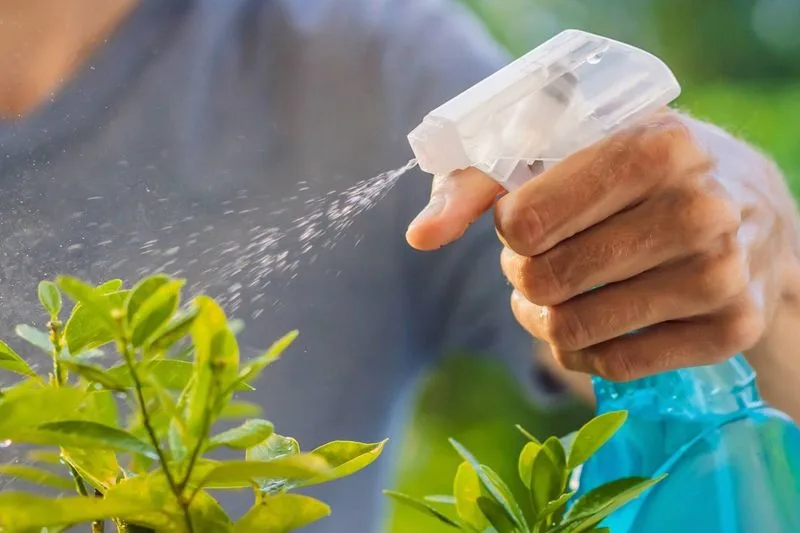
Simple yet effective, soap spray is a gardener’s go-to for tackling soft-bodied insects. Dilute mild soap in water and spray on affected areas. It disrupts insect membranes, providing a quick solution to infestations. Unlike harsh chemicals, it’s safe for your plants and the environment. Soap sprays have been a staple in organic gardening, thanks to their non-toxic nature and ease of use. Give your garden a gentle cleanse with this tried-and-true method.
Baking Soda Remedy
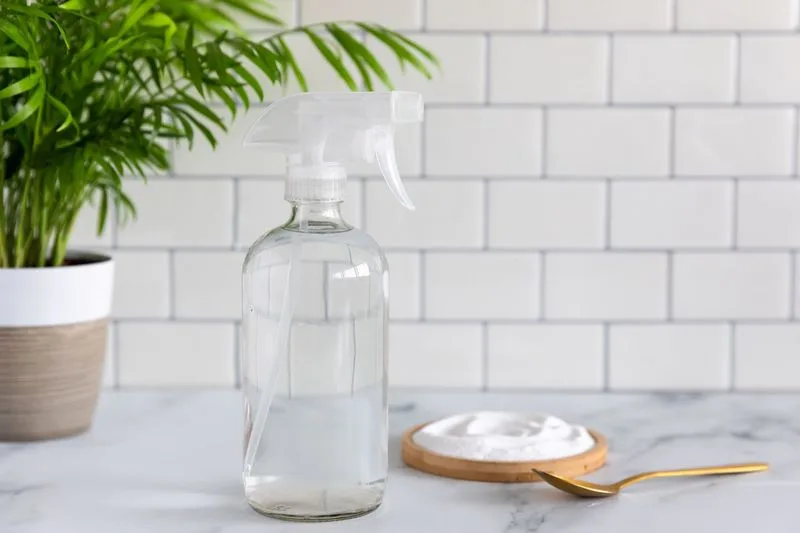
Baking soda, a household staple, doubles as a powerful fungicide. Dust it on plants to combat fungal diseases like powdery mildew. It alters the pH on leaf surfaces, hindering fungal growth. This simple remedy keeps your plants healthy without harmful chemicals. Did you know? Baking soda has been used in agriculture for its antifungal properties since the early 20th century. Embrace this kitchen staple to foster a disease-free garden.
Epsom Salt Booster
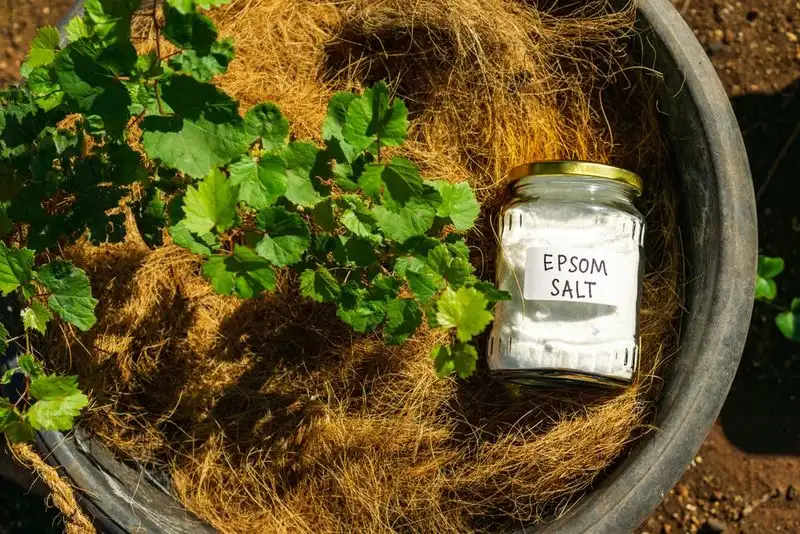
Enhance your soil with Epsom salt, rich in magnesium sulfate. This natural mineral boosts plant growth and improves nutrient absorption. Sprinkle it around the base of plants or dissolve in water for foliar feeding. Your garden will thank you with lush greenery and vibrant blooms. Fun fact: Epsom salt has been used by gardeners since the 17th century to improve soil quality and plant health. Harness this mineral marvel for a thriving garden.
Vinegar Weed Control
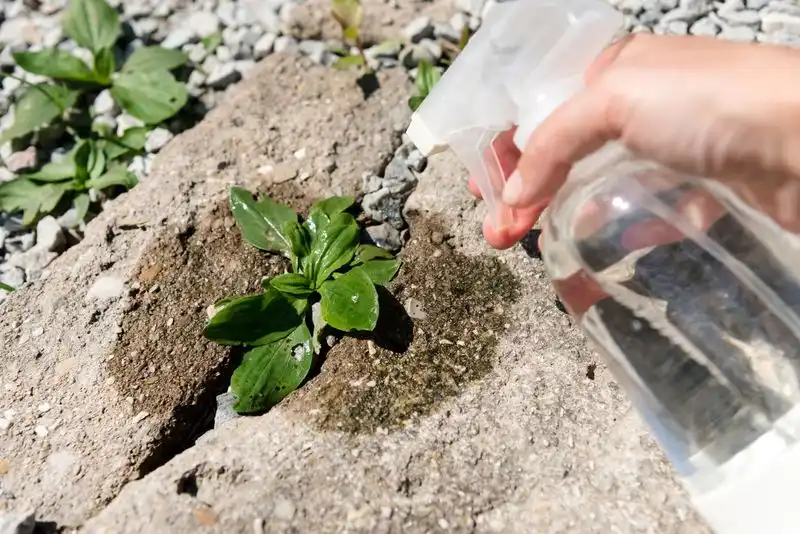
Vinegar, the kitchen’s acidic ally, serves as a potent weed killer. Its acetic acid content desiccates unwanted plants, keeping your garden tidy. Spray undiluted vinegar on weeds, avoiding desirable plants. This eco-friendly method is a simple alternative to harsh herbicides. Historically, vinegar has been employed for its cleaning and disinfecting properties. Utilize its natural acidity to maintain a pristine garden space.
Companion Planting Allies
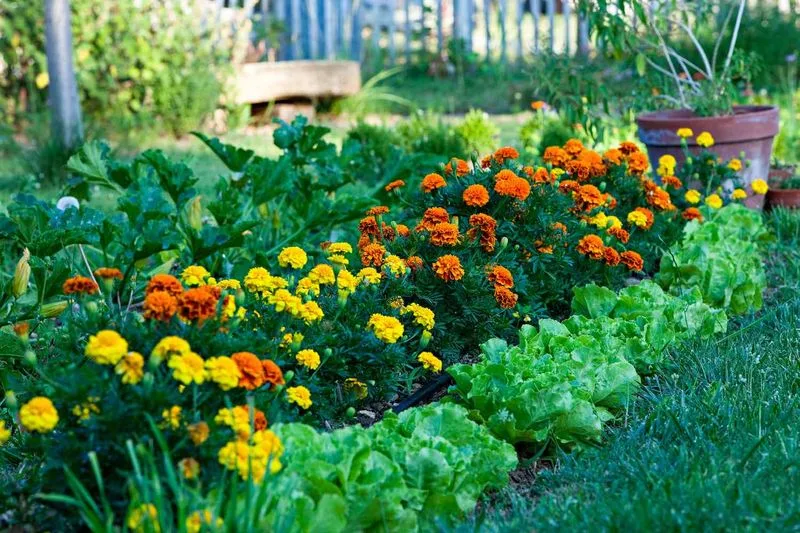
Companion planting is the art of pairing plants that benefit each other. For instance, marigolds deter nematodes, while basil enhances tomatoes’ growth. This strategic planting promotes biodiversity and reduces the need for chemicals. It’s a symbiotic relationship where plants thrive together. Did you know? Indigenous cultures have practiced companion planting for centuries, understanding the natural alliances between plants. Cultivate harmony in your garden with this timeless technique.
Coffee Grounds Rejuvenation
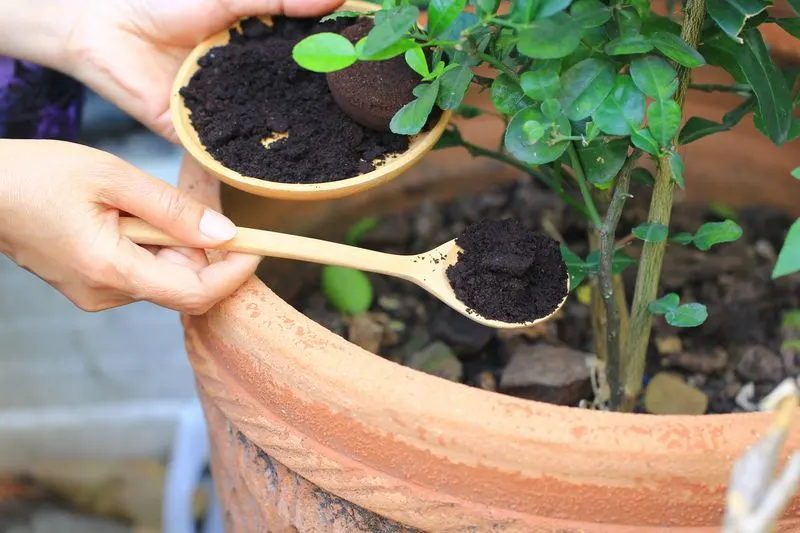
Recycle coffee grounds as a nutrient-rich amendment. They add organic matter, improve drainage, and attract earthworms. Scatter them around acid-loving plants like roses and azaleas. Coffee grounds even deter slugs, offering dual benefits. Interesting tidbit: Coffee grounds have been repurposed in gardens since coffee’s introduction in the 17th century. Embrace this sustainable practice to invigorate your garden with espresso elegance.
Banana Peel Fertilizer
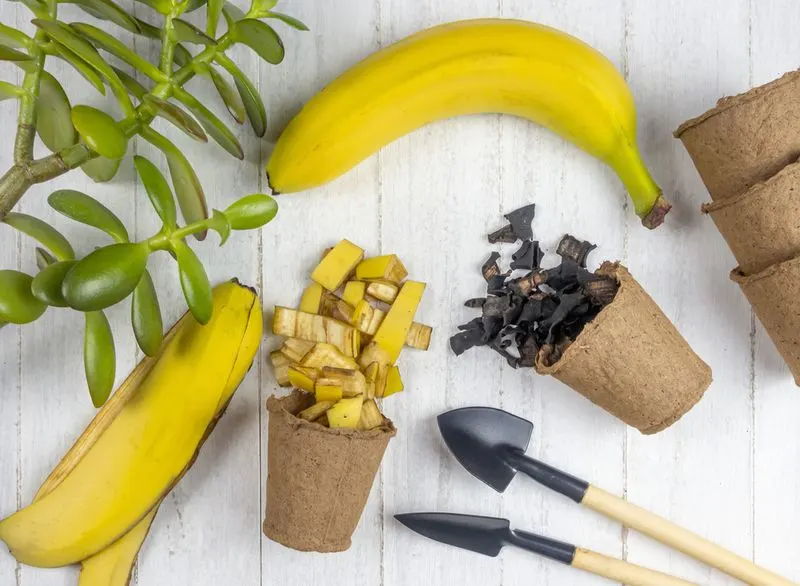
Banana peels, often discarded, are a treasure trove of nutrients. Buried in soil, they decompose and release potassium, a vital nutrient for plant growth. Cut peels into small pieces and mix into the soil for a nutrient boost. This natural fertilizer is an eco-friendly alternative to chemical options. Fun fact: Bananas have been cultivated for thousands of years, and their peels have long been recognized for their nutritional benefits. Elevate your garden with this fruity recycling method.
Seaweed Enrichment
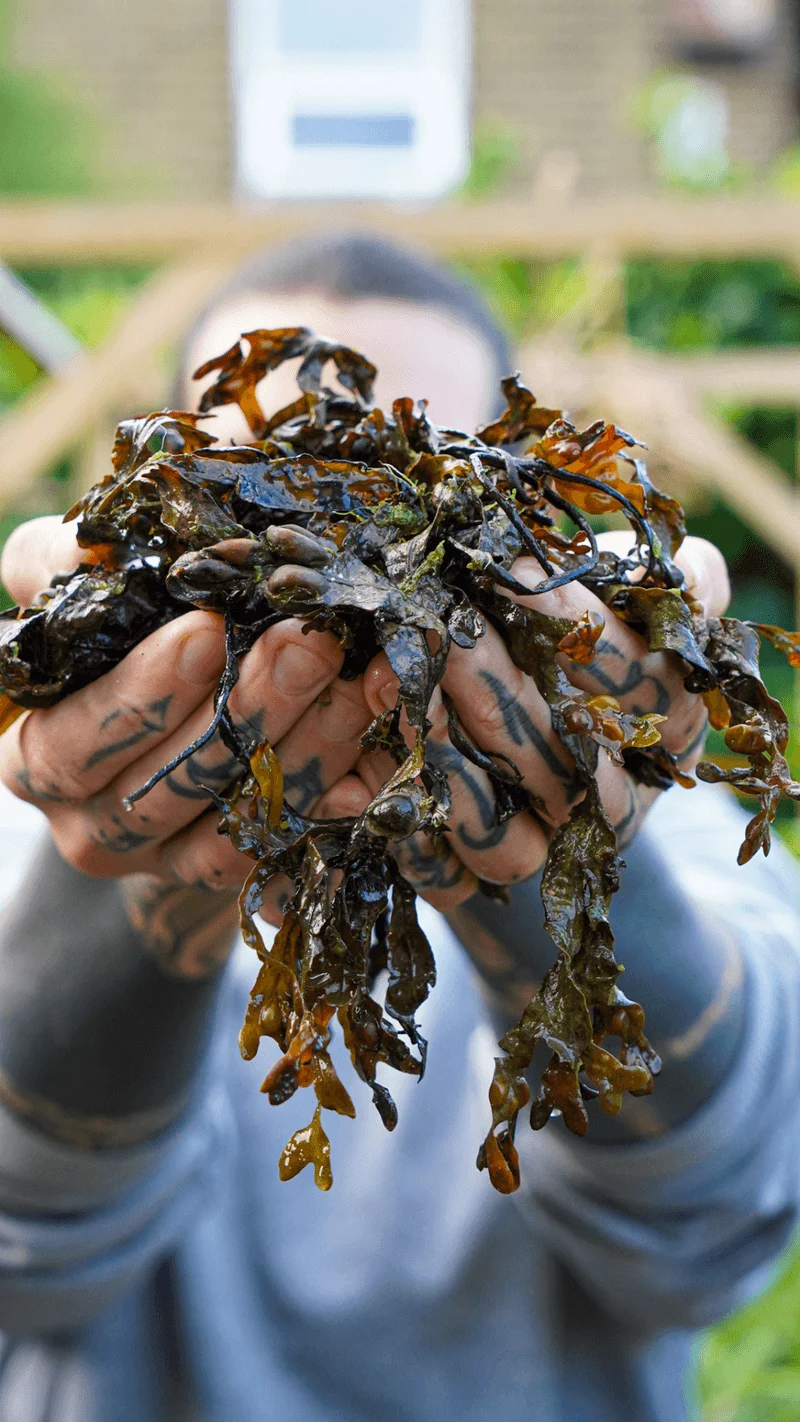
Seaweed, a marine marvel, enriches soil with micronutrients. It’s a sustainable fertilizer that boosts plant health and resilience. Apply it as a mulch or liquid feed for maximum benefits. Seaweed’s natural growth hormones invigorate plants, promoting healthy development. Did you know? Coastal communities have long utilized seaweed for its agricultural advantages. Incorporate this oceanic treasure into your garden for a nutrient-rich oasis.
Diatomaceous Earth Defense
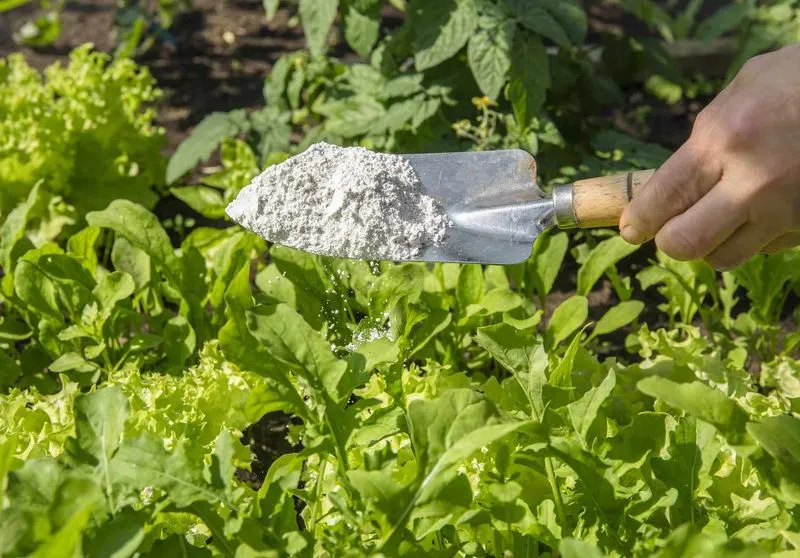
Diatomaceous earth, made from fossilized algae, is a mechanical insect killer. Sprinkle it on soil to deter crawling pests like slugs and beetles. Its abrasive particles damage insect exoskeletons, providing an effective defense. Safe for plants and pets, it’s a gardener’s hidden weapon. Fun fact: Diatomaceous earth has been used since the 19th century for pest control in agriculture. Equip your garden with this natural shield.
Molasses Miracle
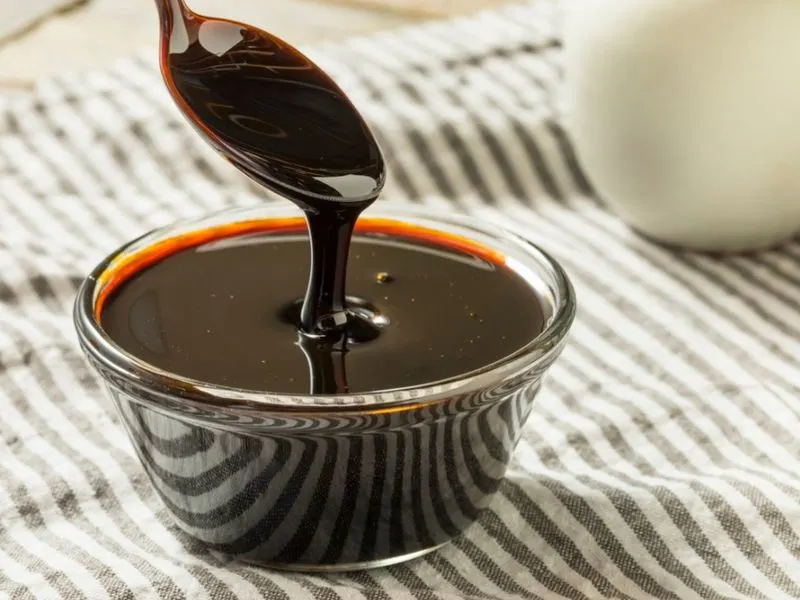
Molasses, a sticky byproduct of sugar production, is a sweet boon for gardens. It feeds beneficial microbes in the soil, enhancing nutrient cycling. Dilute it in water and apply to soil for a microbial boost. Your plants will thrive with improved soil health. Did you know? Molasses has been used as a soil amendment since the 1800s, valued for its ability to enrich garden ecosystems. Sweeten your garden’s success with this sugary solution.
Compost Tea Elixir
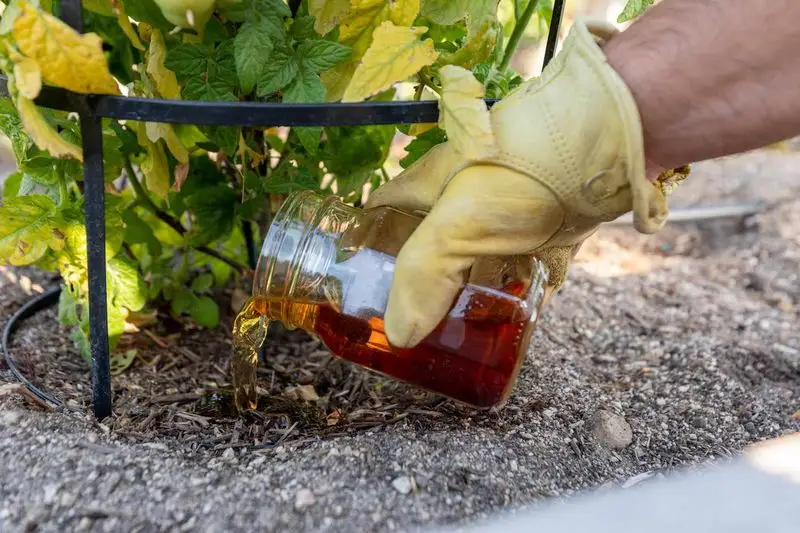
Compost tea, a liquid extract from compost, boosts plant vitality. Brew it by soaking compost in water, then apply as a foliar spray or soil drench. This nutrient-rich tonic enhances microbial activity, promoting healthy growth. An ancient technique, compost tea has been cherished by gardeners for its enriching properties. Infuse your garden with this age-old wisdom for bountiful harvests.
Nettle Tonic
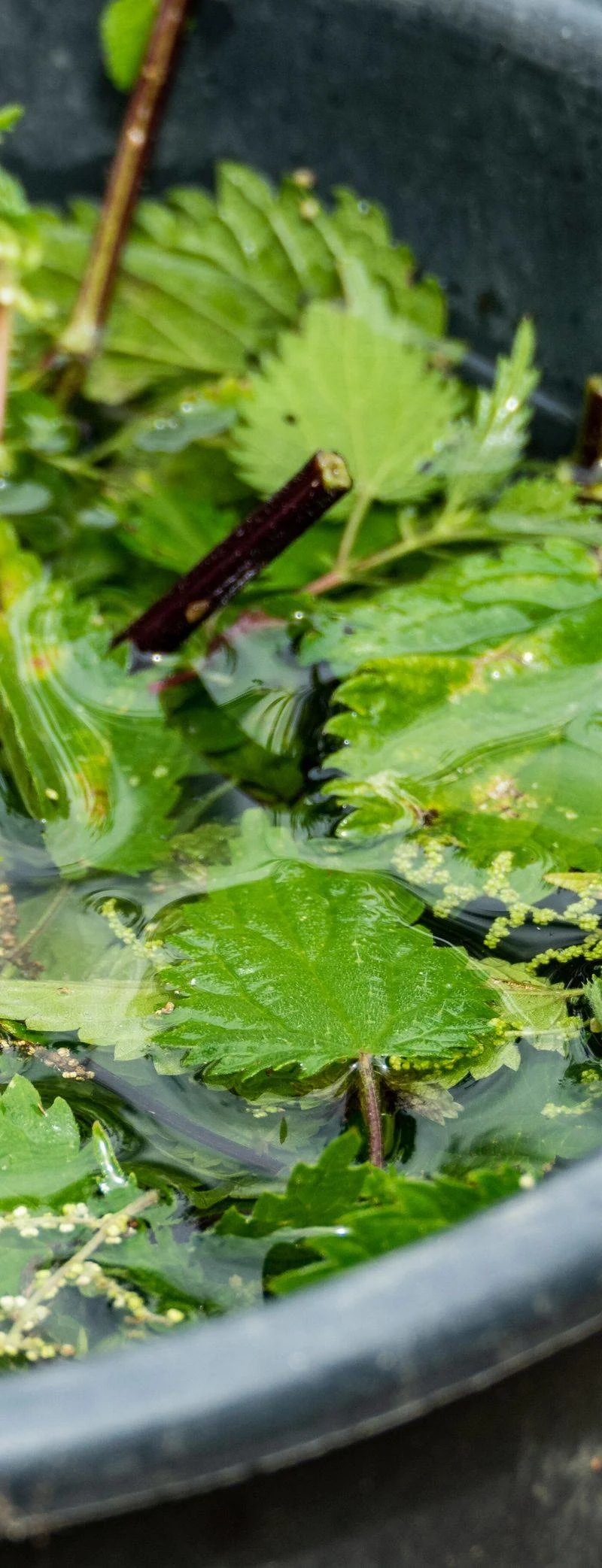
Nettles, often regarded as weeds, are herbal powerhouses. Steep them in water to create a nourishing tonic. This natural fertilizer is rich in minerals, boosting plant health and growth. Apply it as a foliar spray or soil drench for vibrant greenery. Did you know? Nettles have been used in traditional medicine for their therapeutic benefits, and their garden uses are equally remarkable. Transform these prickly plants into a garden blessing.
Citrus Peel Deterrent
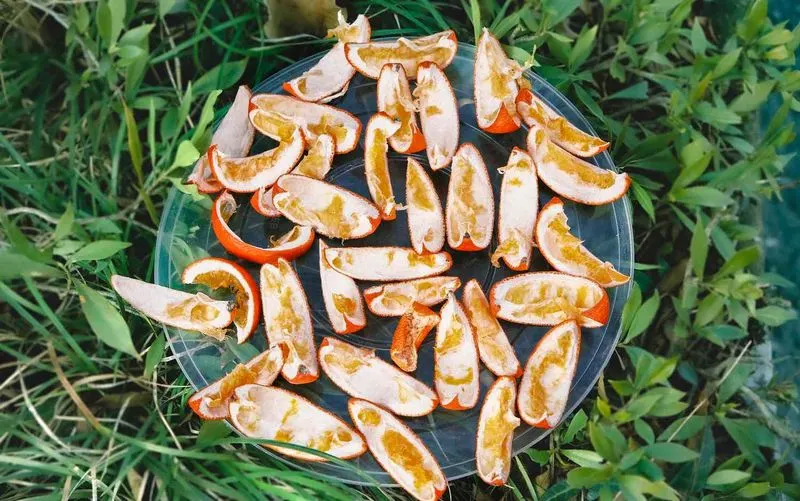
Who knew citrus peels could be a gardener’s best friend? Scatter dried orange and lemon peels around your plants to naturally keep cats and pests at bay. The strong citrus scent is unpleasant to them but refreshing to humans.
Besides being a deterrent, citrus peels add a touch of color to your garden, making it visually appealing. They also decompose over time, enriching the soil.
Fun fact: In the past, citrus peels were used to freshen up homes because of their delightful aroma. Embrace nature’s fragrance in your garden!

